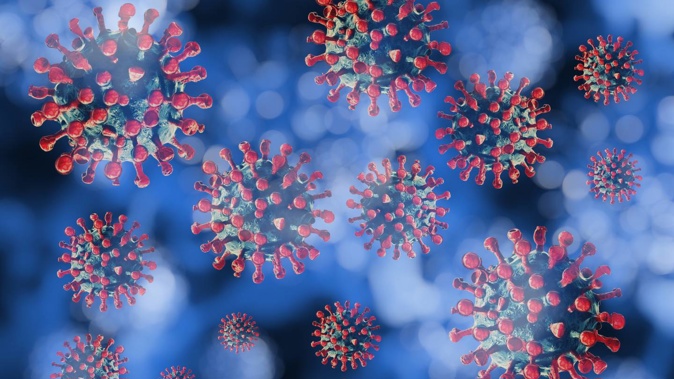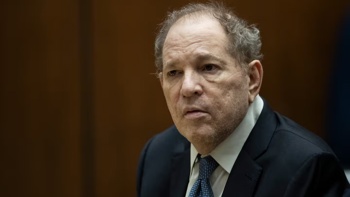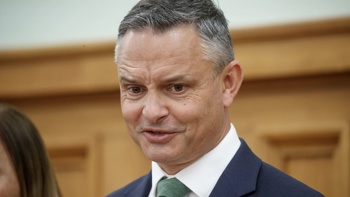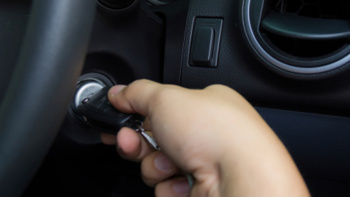
Manawatū District Council has reintroduced Covid-19 response measures amid rising case numbers among staff and what epidemiologists are calling the country’s third wave.
Social distancing, twice weekly rapid antigen testing for staff, limits of how many people can be inside meeting rooms, and encouraged mask-wearing are among the measures the council is taking to limit the spread of Covid.
Otago University epidemiologist Michael Baker welcomed the council’s measures while the country faced its third wave of the pandemic, but said firmer guidelines needed to be in place for organisations to follow to reduce transmission.
“We’re definitely in a third wave, there’s no question,” Baker said.
“Rather than everyone making up their own rules on this, I think it’s much better if there’s really clear guidance by experts at our health agencies that says ‘this is the recommended approach at each level of risk for how to keep people safe’, and I think we could be much stronger on that.”
Baker said the tools to reduce the spread of Covid were readily available, but a nationwide standard did not exist to help people and employers understand what measures should be in place.
/cloudfront-ap-southeast-2.images.arcpublishing.com/nzme/IQDBJIVA3NFHTA4G2RI6ZQFVAY.JPG)
“At the moment organisations are being left to make up the rules for themselves and while some might say that’s great, others will say, ‘well, we’re not the experts and we’d like to have more guidance on this’,” he said.
“What [the council] is describing is, to me, very responsible and appropriate. I think what they’re proposing sounds like they’re being a very good employer.”
Staff and visitors at Manawatū District Council facilities will have to meet requirements to help reduce the spread of Covid-19 at the council.
- Watch: 'Not out of the woods' - Covid summer wave may hit 11k cases a day
- Live: 21,595 new cases, 56 virus-related deaths in the past week
“We’ve implemented these measures in the hope that we’ll be able to maintain our normal levels of service.
“However, we know from past experience that being short-staffed puts others under pressure, so we thank you for your patience and understanding.”
Auckland Council is not putting in place any new protection measures or restrictions at this time, a spokesperson said.
/cloudfront-ap-southeast-2.images.arcpublishing.com/nzme/JMT6TMT5W5AW5OBSPMD522Z5DI.jpg) Manawatū District Council has reintroduced Covid-19 response measures amid rising case numbers among staff and what epidemiologists are calling the country’s third wave. Photo / File
Manawatū District Council has reintroduced Covid-19 response measures amid rising case numbers among staff and what epidemiologists are calling the country’s third wave. Photo / File
“We have good systems in place to help manage any illness amongst our workforce and a high degree of business resilience to manage impacts of any pressure on our service delivery as a result of illness.”
Auckland Council continued to share “standard guidance” at its facilities on how to stay safe through the pandemic. These included basic hygiene measures, including having hand sanitiser readily available.
Baker said risk management was necessary while there was high transmission of Covid in the community with thousands of infections and numerous deaths and hospitalisations each day.
“We are seeing all those health effects and I think what’s happened at the moment there is that the Government is providing tools, but there is a bit of a void of guidelines on how organisations should manage the risk.”
Earlier this week the Ministry of Health reported 21,595 new community cases and 56 virus-related deaths over the previous week.
The seven-day rolling average increased to 3079, from 2976 the week before.
/cloudfront-ap-southeast-2.images.arcpublishing.com/nzme/CDAEKBCJDFDKVLNGCX5QBKHBQI.jpg) Deputy director general of health Dr Andrew Old said on Wednesday that after four weeks of steady increases the past two weeks had seen Covid cases plateau. Photo / Jed Bradley
Deputy director general of health Dr Andrew Old said on Wednesday that after four weeks of steady increases the past two weeks had seen Covid cases plateau. Photo / Jed Bradley
Deputy director general of health Dr Andrew Old said during a live update at Middlemore Hospital in Auckland on Wednesday that after four weeks of steady increases the past two weeks had seen Covid cases plateau.
However, he said hospitalisations were increasing.
Authorities lowered the age of eligibility for a second Covid booster for Māori and Pacific Islanders to 40 and above, while cases over summer could peak at 11,000 and 100 hospital admissions a day.
Prime Minister Jacinda Ardern announced all main Covid-19 protections – the traffic light system, vaccine mandates and most mask requirements would be dropped in September.
Ardern called it a “milestone in our response”.
Baker told the Herald, “It’s unfortunate that the alert level system and the traffic light system have both been dropped by the Government.
“We’re still a long way away from actually starting to limit meetings and events, and hopefully we don’t get back to that point, but I think below that we do need to have carefully worked out guidelines and some limited mandates.”
/cloudfront-ap-southeast-2.images.arcpublishing.com/nzme/G26WQ7U6TFFAPCG2JJJUZSTEAU.jpg) Otago University epidemiologist Dr Amanda Kvalsvig took this CO2 reading on a Wellington Metlink bus - showing levels to be more than three times what would be considered suitable. Photo / Amanda Kvalsvig
Otago University epidemiologist Dr Amanda Kvalsvig took this CO2 reading on a Wellington Metlink bus - showing levels to be more than three times what would be considered suitable. Photo / Amanda Kvalsvig
Otago University’s Amanda Kvalsvig said high CO2 levels she recorded on buses backed a “strong argument” to reinstate mask mandates on public transport – a measure that health bosses had also asked to be retained before September’s Covid-19 roll-backs.
In crowded, stuffy places where infectious diseases were more likely to spread, Kvalsvig said CO2 – breathed out by people – gave us a good idea of how much air we were sharing with others.
Baker said, “We’ve got mandatory masks in health and aged care that I think we could have more widespread in places that really matter.
“Public transport would be the critical environment for mask-wearing because it’s a place where people are forced to be in confined environments for long periods.
“Beyond that, there are other settings where you have to start thinking about safe environments and shift our approach.”
Meanwhile, Manawatū District Council said it hopes to be back to the “usual levels of staff in the next couple of weeks”.
Take your Radio, Podcasts and Music with you









